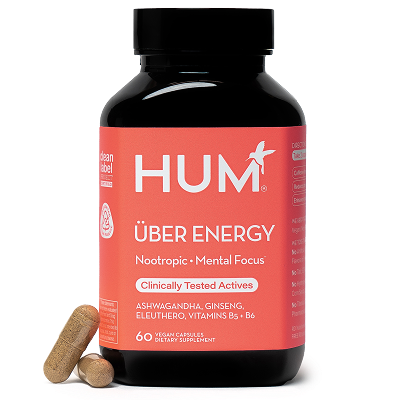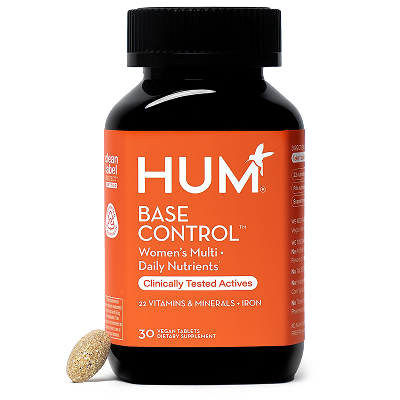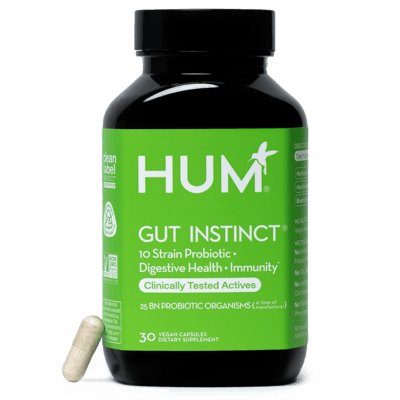Beat the slump with these simple expert-based tweaks to your daily diet.
Call it what you want to call it—exhaustion, burnout, low energy—feeling sleepy and sluggish doesn’t feel good. Fatigue looks different for everyone. You may lack the motivation you once had to work out or play with your kids, while others may struggle to focus at work or while catching up with friends.
Although there are many causes of low energy levels, ranging from stress and medical issues to a sedentary lifestyle, one thing can almost always impact how you feel: your diet. “What we put in our bodies is the fuel that directly impacts our energy levels, for better or for worse,” says Maggie Moon, MS, RD, a Los Angeles-based registered dietitian and author of a new book, The MIND Diet. “Heavy meals, unbalanced meals, skipping meals, alcohol, caffeine, and glucose-spiking snacks can leave people feeling sluggish.”
The good news, according to Moon, is that you don’t have to overhaul your entire diet to shake off exhaustion. “Small positive shifts in what, when, and how much we eat can mean the difference between feeling drained and having sustained energy so we can feel our best.” These are the expert-backed diet strategies that Moon and other diet experts say can make the biggest impact.
5 Tips for More Energy. Plus, Recipe Ideas to Help Boost Your Health
1. Don’t Skip Meals
If you’ve ever worked through lunch or didn’t have enough time to grab breakfast, you already know missing a meal can leave you feeling hangry. But what you may not realize is that it can also make you feel really tired, research shows. On the flip side, regularly eating healthy meals and snacks throughout the day has the opposite effect, Moon says, explaining that it “ensures you’re regularly refueling your brain and body with the nutrients it needs to perform.”
To maintain your energy levels, she recommends eating three balanced meals a day, along with a couple of small snacks in between. But everyone is different. “Some people thrive on fewer large meals or more frequent small meals—see what works for you.”
2. Add Some Energy-Boosting Recipes to Your Weekly Rotation
Regardless of how many meals or snacks you have, the goal should be to consume a balanced mix of nutrients regularly throughout the day.
Moon says every meal or snack should include complex carbohydrates for quick energy, as well as lean protein and healthy fats for sustained energy. “A simple way to build a balanced meal is to fill half a plate or bowl with colorful vegetables cooked or drizzled with olive oil, then split the rest between whole grains, like quinoa or brown rice, and a protein like fish, chicken, tofu, or beans,” she says.
Julie Upton, MS, RD, a registered dietitian in the San Francisco Bay Area, agrees and suggests snacks such as Greek yogurt topped with fresh fruit and rolled oats, or fresh or dried fruit with nuts and whole wheat crackers.
Looking for some additional guidance? Add these simple energy-boosting recipes to your weekly rotation.
Easy Greek Tzatziki Chicken Salad with Pita
Serves: 1
Prep Time: 5 minutes
Ingredients:
- 4.5 oz. pre-grilled chicken breast or rotisserie chicken
- 5 Tbsp store-bought tzatziki sauce
- ½ cucumber, chopped
- ½ bell pepper, chopped
- 2 Tbsp. red onions, chopped
- Dried parsley, to taste
- Salt and pepper, to taste
- ½ cup chopped romaine lettuce
- ½ pita bread
Instructions:
- Combine chicken, tzatziki, cucumber, bell pepper, red onion, and seasonings in a bowl and mix until well combined.
- Stuff the pita with lettuce and the chicken and veggie mixture
Cauliflower Rice Chicken Fajita Bowl
Serves: 1
Prep Time: 30 minutes
Ingredients:
- 1 Tbsp. olive oil
- 4 oz. chicken breast
- 1 bell pepper
- ¼ onion
- Taco seasoning, to taste
- 2 cups cauliflower rice
- ¼ cup canned corn, drained
- ¼ cup canned black beans, drained
- ¼ cup salsa
- ¼ avocado, sliced
Directions:
- Add oil to a pan and heat over medium heat.
- Slice chicken, bell peppers, and onion into thin strips and add them to the pan.
- Once the chicken starts to cook through, add the seasoning, cauliflower rice, corn, and beans.
- Stir the mixture occasionally until the chicken has cooked through and the vegetables have softened.
- Serve the mixture in a bowl and top with salsa and avocado
3. Address Any Nutrition Deficiencies
You could be following the healthiest diet in the world, but if you’re not getting enough calories or the right micronutrients, you still may feel tired and sluggish. “Calories are literally energy, so without them, energy levels will dip,” Moon says. To make sure you’re eating enough on a daily basis, input your age, height, weight, and activity level into the USDA’s MyPlate calculator.
As for micronutrients, even a slight deficiency in any of the ones listed below can have a negative impact on your energy:
- B Vitamins – These are critical in converting food to usable energy, as noted by Moon and Upton. When levels are low, your body can’t optimize the calories you’re feeding it.
- Iron – The body needs this mineral to transport oxygen to cells in order to produce energy. So even if you don’t have anemia, low iron is a common cause of fatigue, Upton points out.
- Vitamin C – Without enough, we can feel weak because this nutrient is needed to make enzymes that support metabolism and convert food into energy, Moon explains.
- Magnesium – This mineral is used to deliver energy to our cells, which are responsible for supporting countless biochemical reactions in the body. Research shows that women with deficiencies use more energy to complete tasks—and, in turn, become tired more quickly than those with adequate levels.
If you’re sleeping well and taking time for regular rest and think your lack of energy may be diet-related, Moon suggests working with a registered dietitian to ensure you are meeting your energy and micronutrient requirements. Although not all nutrients can be easily or reliably checked with blood tests, your dietitian or doctor can also order additional tests to help shed light on potential issues, allowing you to better adjust your diet to address your specific needs. They may even suggest adding a supplement to your routine.
If you go that route, HUM’s Base Control is a good one to consider. It has 50 milligrams (12 percent DV) of magnesium, 100 mg of vitamin C (111 percent DV), 18 mg of iron (100 percent DV), 15 mcg of Vitamin B12 (625 percent DV), and 10 mg of Vitamin B6 (588 percent DV). If B Vitamins are your primary concern, you may prefer to try HUM’s Uber Energy, which has ginseng to help reduce physical and mental fatigue along with Vitamins B5 and B6 to support consistent energy levels.
4. Nourish Your Gut Bacteria
The bacteria that live in your gut (commonly known as your microbiome) are really good for you and help keep your body running smoothly. They aid in digestion, immunity, and even aspects of your health that can impact how energized you feel. That said, keeping them happy is vital.
Research has found that an imbalance in gut bacteria may be associated with sleep quality and duration, which can lead to chronic fatigue. Additionally, Moon points to research that shows that people with chronic fatigue syndrome are more likely to have imbalanced microbiomes, and that having more pro-inflammatory gut bacteria is associated with worse fatigue scores in cancer patients. Although researchers are still trying to connect the dots to understand how these things are connected, it may have something to do with the microbiome’s ability to impact chronic inflammation and digestive issues, which can affect nutrient absorption.
If you often experience digestive issues such as chronic bloating, gas, diarrhea, or constipation, or are sensitive to certain foods, your gut health may be contributing to your ongoing fatigue. In addition to eating things like yogurt, kefir, tempeh, kombucha (Moon likes options from Health-Ade), and kimchi, ask your doctor if you may benefit from a probiotic like HUM’s Gut Instinct, which has 10 strains of probiotics that help support a healthy digestive tract. Your doctor or nutritionist can also shed more light on what they think may be the underlying cause of your low energy levels.
5. Rethink Your Drinks
When it comes to boosting your energy levels, what you sip throughout the day is just as important as what you eat.
First and foremost, hydrate. “Even mild dehydration can lead to fatigue or drowsiness because it slows your blood flow, which is responsible for delivering oxygen and nutrients to your entire body,” Moon says. Moon recommends hydrating throughout the day with a combination of water and high-water fruits and vegetables, such as cucumbers, watermelon, bell peppers, and tangerines. “All of these choices are mostly water.” Upton agrees that water is generally the best choice for hydration and notes that sugar-free electrolyte replacement drinks and other decaffeinated beverages are also good options.
The U.S. National Academies of Sciences, Engineering, and Medicine suggest 15.5 cups (3.7 liters) of fluids a day for men and 11.5 cups (2.7 liters) of fluids a day for women—which is a lot, TBH. So whatever will help you reach that threshold should be chilling in your fridge. There are, however, some exceptions when trying to boost energy levels: alcohol and caffeinated beverages. “After the initial buzz, alcohol shows its true colors as a central nervous system downer, leading to fatigue, explains Moon. “It’s also a known sleep disrupter and dehydrator, both of which destroy your energy levels the following day.”
Caffeine can be equally as hard on the body’s ability to get up and go. “It’s important to note that caffeine doesn’t provide energy; it masks fatigue,” Moon says, noting that it can actually make you more tired in the long run because of its effects on sleep. “The average time it takes for caffeine to clear from the body is 10 to 12 hours. But some people metabolize it more quickly than others. To keep caffeine from disrupting sleep and causing daytime tiredness, I recommend sticking to moderate intake in the morning only and enjoying it alongside a balanced breakfast—like yogurt with chopped fresh fruit and nuts—for actual sustained energy.”

What You Need to Know About Carb Cycling, According to a Registered Dietitian
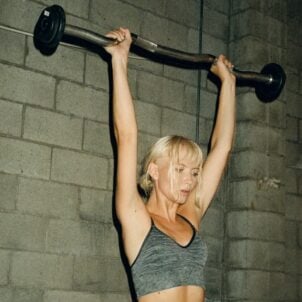
Your Core Habit: Why Fibermaxxing May Be Your Gut’s Best Bet to Beat Bloat and Keep Things Regular
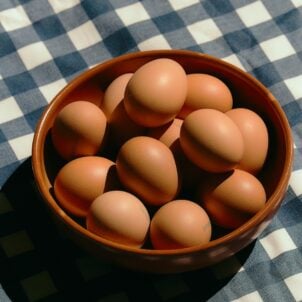
Try *This* Type of Breakfast to Lose Weight and Curb Cravings

